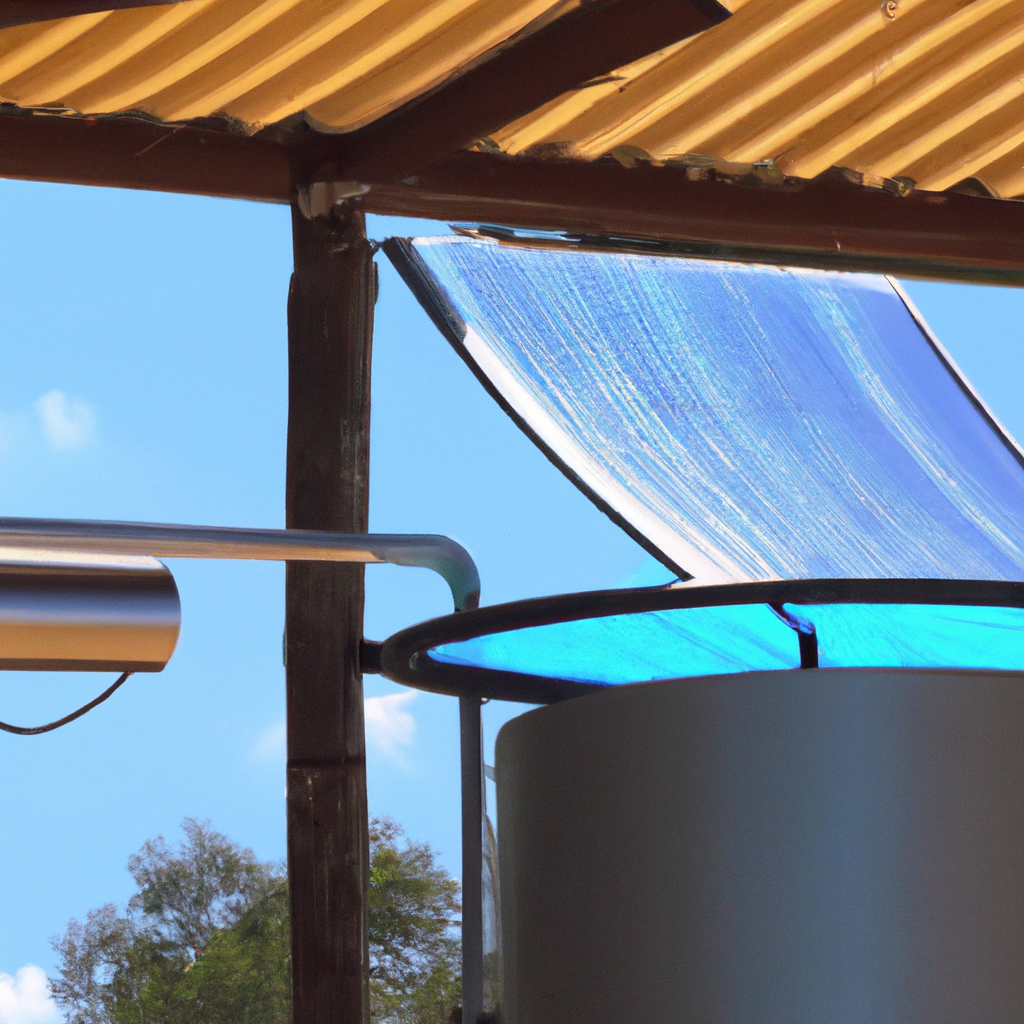A solar water heater is a device that uses solar energy to heat water for domestic use. It is a green and renewable energy solution that can help households save money on their energy bills while reducing carbon footprint. In this article, we will explore how a solar water heater works, the benefits of using solar energy, and how to choose the right system for your home.
How it works:
A solar water heater works by using the sun’s energy to heat up water stored in a tank. The system is made up of three main components:
1. Solar Collector: This is the part of the system that absorbs sunlight and converts it into heat. The collector is usually a flat panel made of copper or aluminum, coated with a dark material that can absorb sunlight.
2. Storage Tank: This is where the heated water is stored until it is needed. The tank is usually insulated to keep the water hot for longer periods.
3. Circulation System: This is the system that circulates the water from the collector to the storage tank and back, using a pump or natural convection.
When sunlight hits the collector, it heats up the water inside. The heated water then rises and flows into the storage tank, while colder water from the bottom of the tank flows into the collector to be heated again. This cycle continues until the water in the tank reaches the desired temperature.
Benefits of using solar energy:
Using a solar water heater has many benefits, including:
1. Energy Efficiency: Solar water heaters are highly efficient, as they use natural sunlight to heat water instead of electricity or gas. This can help households save money on their energy bills and reduce their carbon footprint.
2. Renewable Energy: Solar energy is a renewable energy source, which means it is sustainable and will not run out. Using solar energy can help reduce dependence on fossil fuels and promote a cleaner environment.
3. Longevity: Solar water heaters have a long lifespan, usually lasting up to 20 years or more with proper maintenance. This makes them a cost-effective solution in the long run.
Choosing the right system:
When choosing a solar water heater system, there are several factors to consider, including:
1. Climate: The amount of sunlight available in your area will determine the size and efficiency of the system you need.
2. Tank Size: The size of the storage tank should be based on the number of people in your household and your hot water usage.
3. Cost: Solar water heaters can be expensive to install, but they can also save you money on your energy bills in the long run. Consider the upfront costs and the potential savings when choosing a system.
4. Maintenance: Solar water heaters require regular maintenance to ensure they are functioning properly. Consider the maintenance requirements when choosing a system.
Conclusion:
A solar water heater is a green and renewable energy solution that can help households save money on their energy bills while reducing carbon footprint. The system works by using the sun’s energy to heat up water stored in a tank, and it has many benefits, including energy efficiency, renewable energy, and longevity. When choosing a system, consider factors such as climate, tank size, cost, and maintenance requirements. By choosing the right system, households can enjoy the benefits of a solar water heater for years to come.







